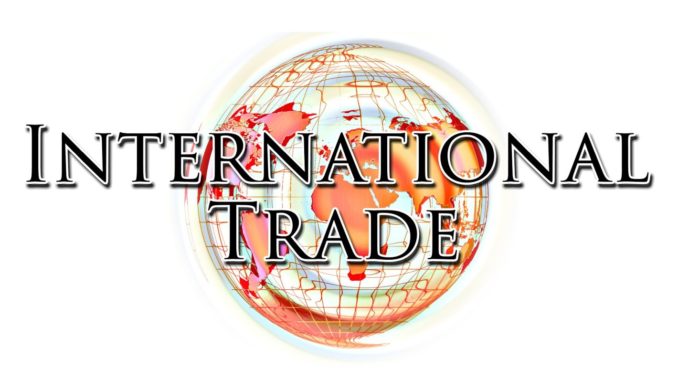
Guest Editorial By Don Sutherland
“He loves me. He loves me not…”
It was almost as if President Trump were playing the popular children’s game that involves a child’s alternating between each phrase while picking petals off a flower, one by one. Eventually, the child arrives at the truth when he or she reaches the last petal.
After having left Canada, Mexico, and the European Union dangling in high suspense, President Trump finally delayed his decision on aluminum and steel tariffs. “He loves me…”
The Washington Post reported:
President Trump at the last minute on Monday evening announced he would again postpone imposing tariffs on steel and aluminum imports from Canada, Mexico and the European Union, two people familiar with the decision said, pushing off a key economic decision while he tries to prod foreign leaders into making trade-related concessions…
The late announcement — the tariffs would have kicked in at midnight — are the latest unexpected directive in Trump’s four-month effort to upend the U.S.’s trade relationship with more than a dozen countries. Some countries have received preferential treatment by agreeing to early changes, such as South Korea. Others, such as Japan, have been rebuffed despite repeated overtures from their leaders.
As the nation’s position on the tariffs was delayed, not decided, additional petals remain to be plucked. While such drama might make for good Reality TV, it makes for lousy foreign policy. Foreign policy depends heavily on the development and maintenance of trust.
Foreign policy, like any human relationship, requires trust to be feasible. Just as people need trust to cultivate friendships or more, nations require trust to mitigate the risk that other countries will conduct themselves in a fashion that is harmful to their economic, political, and national security interests.
Trust is what gives rival states an incentive to negotiate agreements to take advantage of the limited interests they share while managing the large differences that divide to mitigate the risk of conflict. Trust, often accompanied by robust verification regimes, gives the parties the confidence necessary to expect that the agreements will be honored. Otherwise, there would be little point in pursuing diplomacy with rivals. Then, deterrence, which would need to be made credible by frequent uses of military force, would solely define their relationships.
Trust provides a basis for allies to go beyond the contours of their interests to forge far deeper ties with one another. In such relationships, allies appreciate that they have the freedom as sovereign states to disagree over policy, the liberty to share frank assessments with one another, and the confidence to know that their relationships will remain solid even when they disagree over priorities and policies. Trust also provides a foundation that makes it possible for allies to justify making great sacrifices on behalf of one another. The intense collaboration of allies creates synergies in which the strength of the partnerships and the benefits that accrue from those partnerships are greater than the sum of the contributions each country makes to the partnership.
Trust must be nurtured and sustained over long periods of time. Reliability is essential to building and sustaining trusting relationships. Uncertainty can inhibit the development of trust or drain what trust exists. Wild swings in policy can prove especially damaging.
Former Secretary of State Henry Kissinger explained:
Radical shifts in our course inevitably affect the stability of especially friendly governments. If these changes are seen to occur largely for domestic effect, if our elections come to determine as well the stability of foreign governments, no nation that has a choice will readily cooperate with us.
President Trump has articulated the thesis that trade is a zero-sum game with clear winners and losers. In his view, America loses. His position stands in stark contrast to the large body of economic literature that demonstrates that trade is a mutually beneficial “win-win” relationship. President Trump has also periodically questioned the contributions of leading allies, including NATO states. These developments have injected added uncertainty into U.S. relationships with the world at large.
Back to the steel and aluminum tariffs, Trump’s latest decision was a case of “he loves me…” However, no assurances were given beyond the extension of the deadline by which the President will make his decision. Then, he may yet arrive at “he loves me not…” Unlike in the children’s game, the consequences of such an outcome would be anything but harmless.
